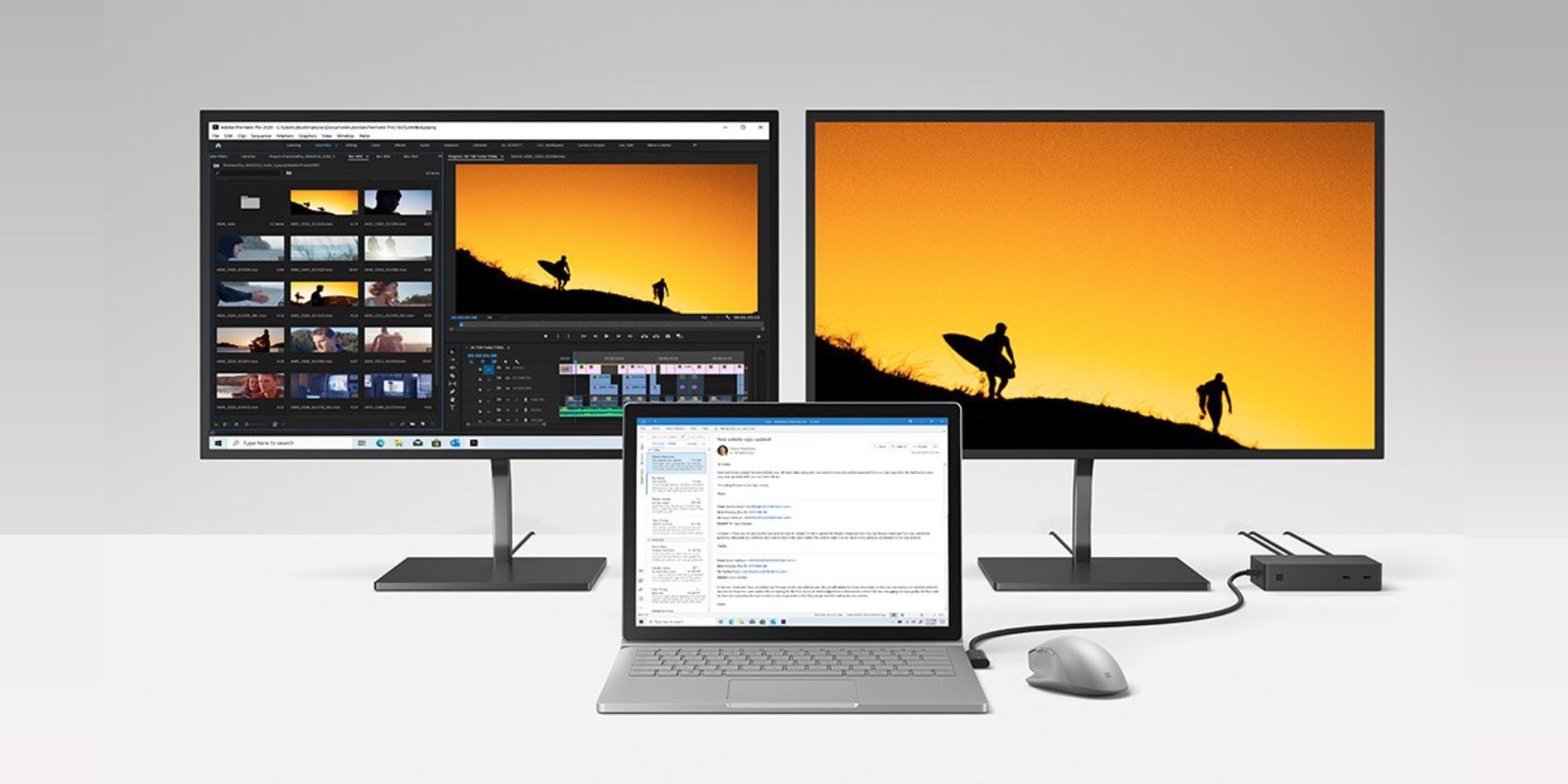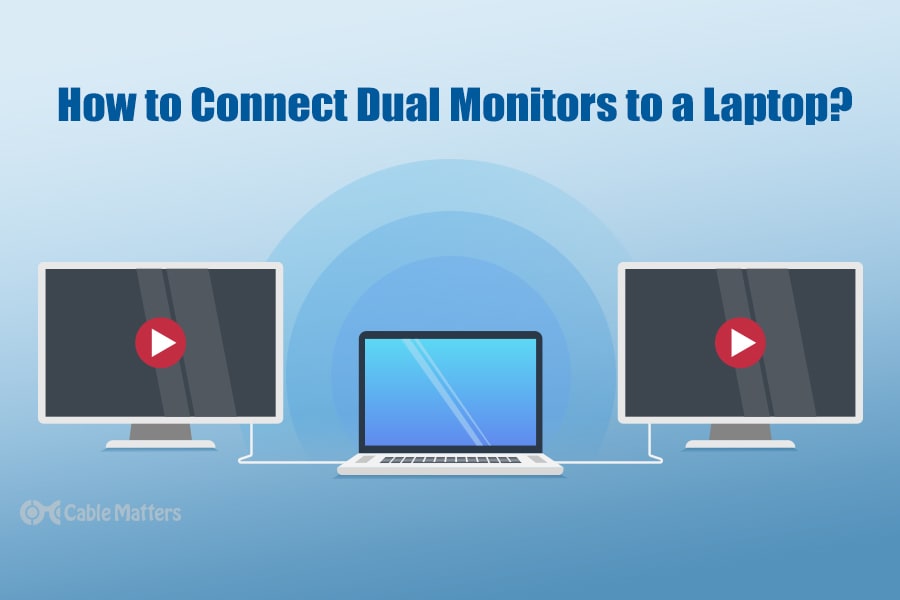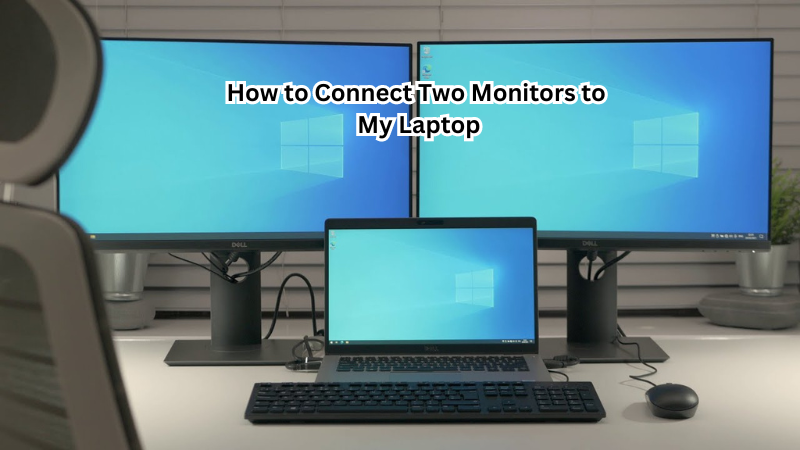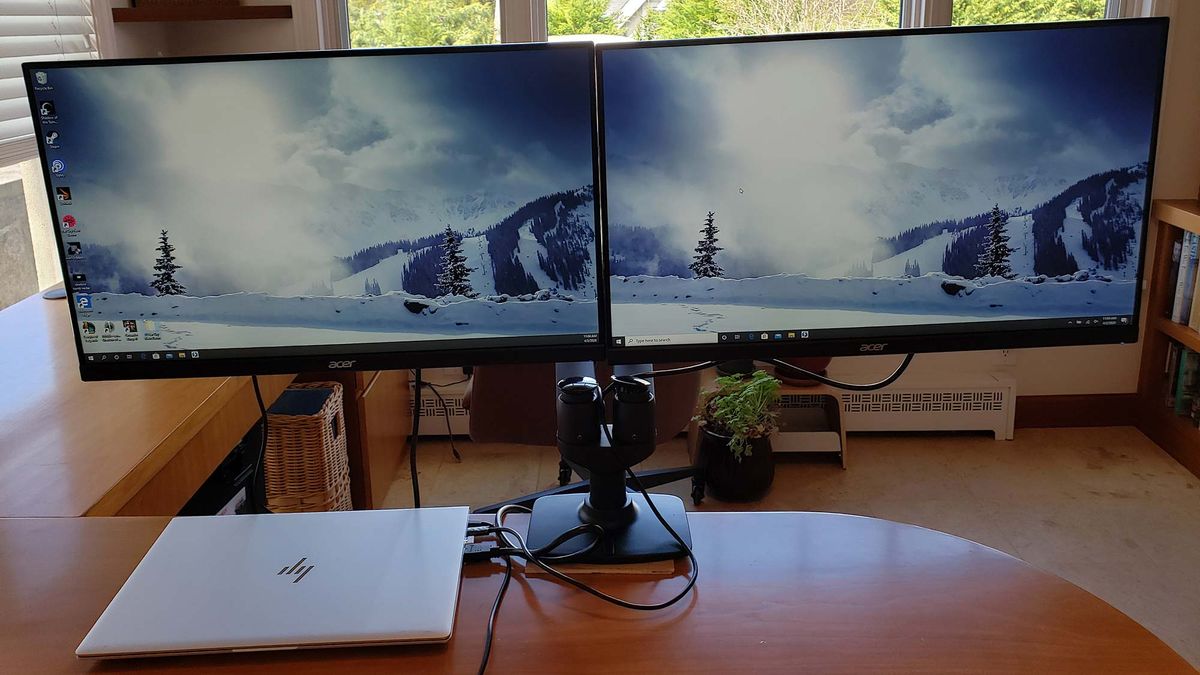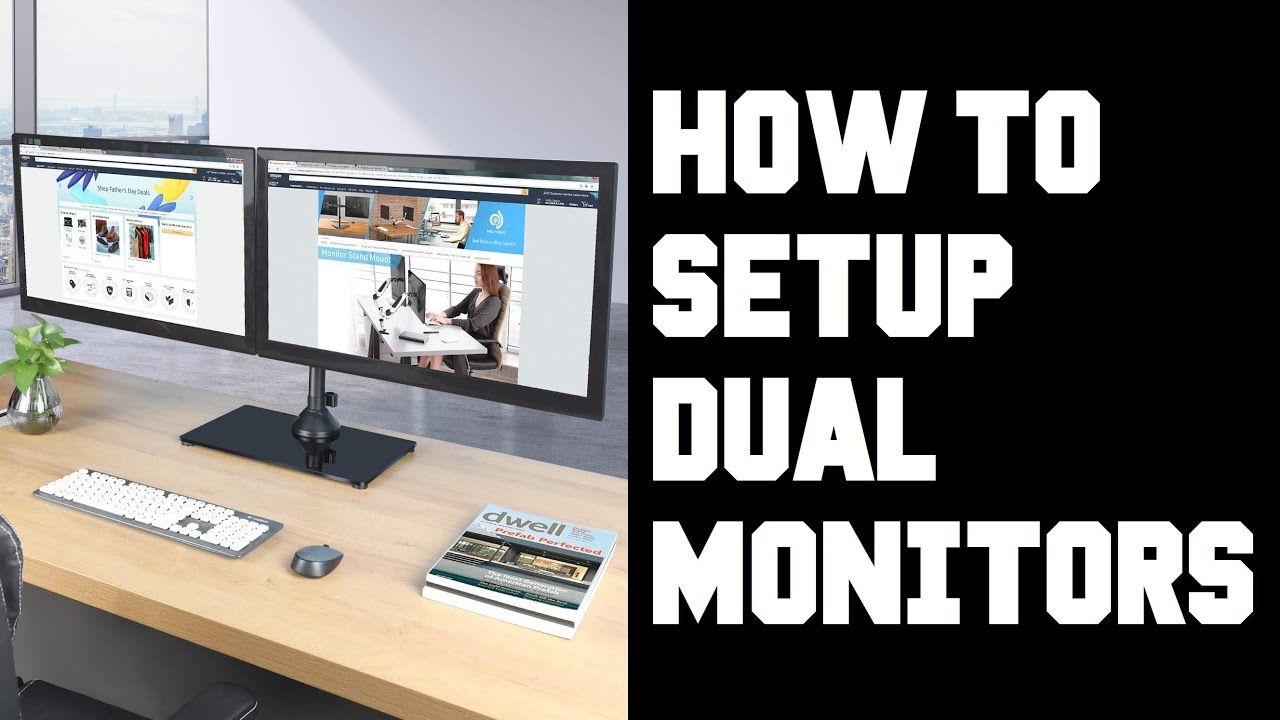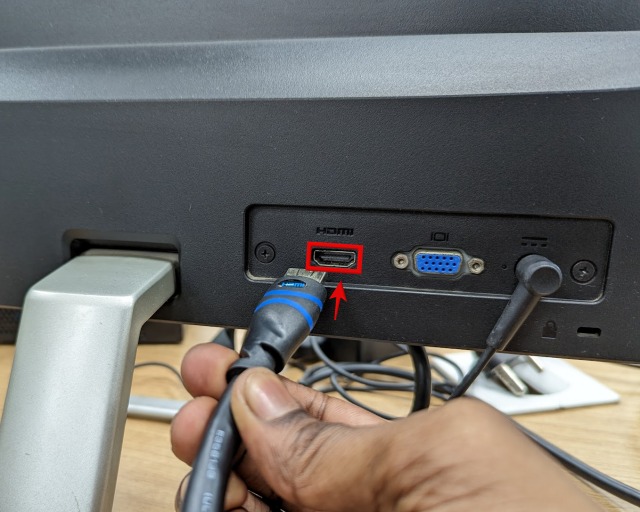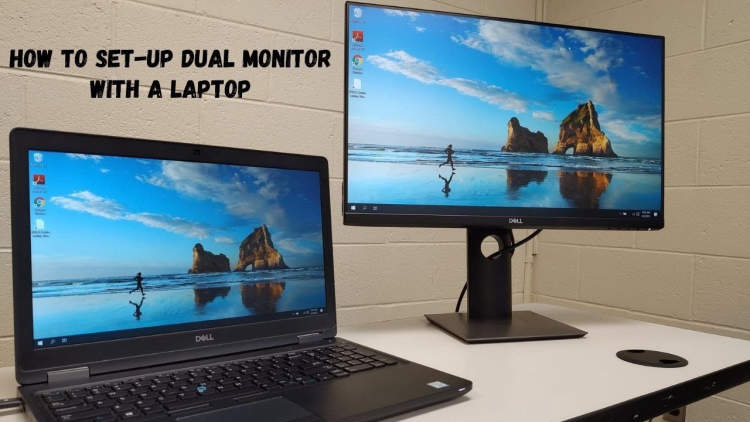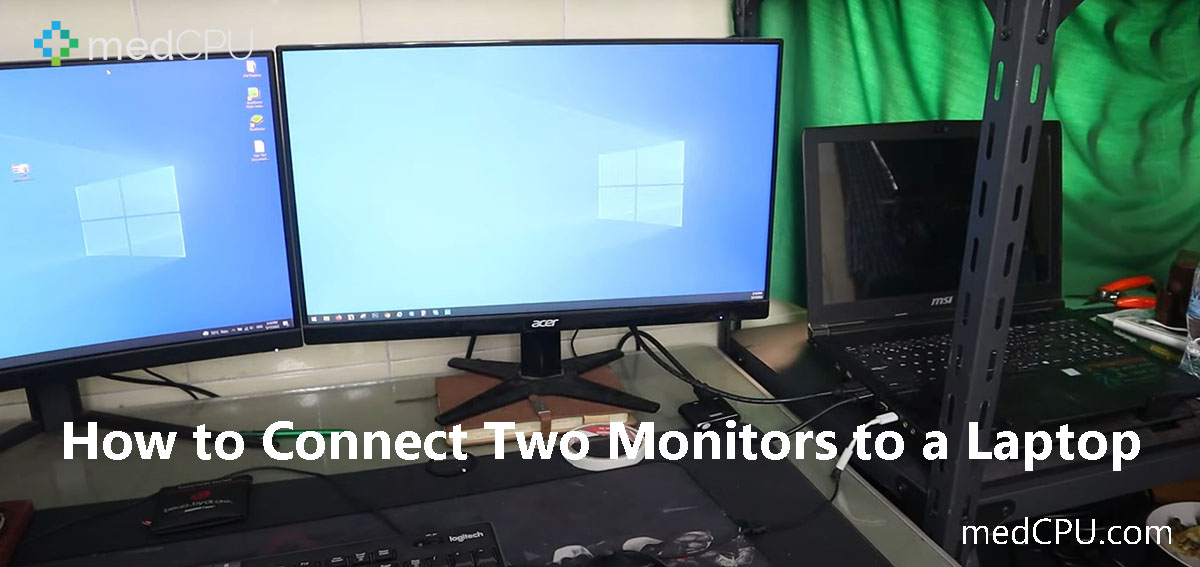How To Connect 2 Monitors To Your Laptop

Imagine this: you're juggling multiple windows on your laptop screen, constantly tabbing between research papers, spreadsheets, and that all-important video call. Frustration mounts as your productivity plummets. But what if there was a simple solution to reclaim your desk space and sanity?
Connecting a second monitor to your laptop is a game-changer for productivity and multitasking. This guide breaks down the steps, ensuring a seamless setup for any user, regardless of technical expertise.
Understanding Your Laptop's Ports
The first step is identifying the available ports on your laptop. Common ports include HDMI, DisplayPort, USB-C, and occasionally, VGA.
HDMI is the most common and widely supported. DisplayPort offers similar functionality, often with slightly better refresh rates. USB-C, especially those with Thunderbolt support, can handle video output along with data and power.
Checking Your Monitor's Inputs
Next, examine the inputs on your external monitor. Make sure to match the output port on your laptop with an available input on your monitor.
Adapters can bridge the gap between different port types, such as HDMI to DisplayPort, should you need them. Always ensure you buy a good quality adapter.
Connecting the Monitor
Once you've identified compatible ports, physically connect the monitor to your laptop using the appropriate cable. Ensure both the laptop and monitor are powered on.
With the physical connection established, it's time to configure your display settings. Windows and macOS typically detect the second monitor automatically.
Configuring Display Settings (Windows)
On Windows, right-click on the desktop and select "Display settings." You should see representations of both your laptop screen and the external monitor.
If the second monitor isn't detected, click "Detect" to force the system to recognize it. From here, you can choose how the monitors are arranged.
Choose between "Duplicate," "Extend," or "Show only on [monitor number]" to tailor your display setup. "Extend" is generally the most useful, allowing you to spread your work across both screens.
Configuring Display Settings (macOS)
On macOS, go to "System Preferences" and then "Displays." The "Arrangement" tab allows you to position the monitors relative to each other. Drag the monitor icons to match the physical arrangement on your desk.
You can also designate one monitor as the primary display, which will house the menu bar and dock.
Troubleshooting Common Issues
If your second monitor isn't displaying anything, double-check the cable connection. Make sure the monitor is powered on and set to the correct input source.
Driver issues can also cause problems. Visit your laptop manufacturer's website to download and install the latest graphics drivers.
Sometimes, a simple restart of your laptop can resolve display-related glitches.
Embracing the Dual-Screen Advantage
Adding a second monitor isn't just about having more screen real estate; it's about streamlining your workflow and reducing distractions. According to a study by Jon Peddie Research, using multiple monitors can increase productivity by up to 50%.
Whether you're a student, a creative professional, or simply someone who wants to be more efficient, a dual-monitor setup can transform your computing experience. A dual-monitor setup allows a person to reference source material on one screen, while writing or editing on the other.
The ability to have multiple applications visible at once minimizes the need to switch between windows, reducing cognitive load and improving focus.
Connecting a second monitor to your laptop is a simple upgrade that yields significant returns. Take a few minutes to set it up, and you'll wonder how you ever managed with just one screen.



